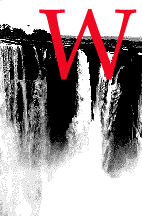
ho in all antiquity, after Homer, had the greatest force of imagination? Most of us would be inclined to name, perhaps, Æschylus, or Phidias, or at any-rate, some artist. D’Alembert names Archimedes—a mathematician; Sir William Hamilton selects Aristotle—a philosopher. Those who treat of imagination as but a special form of reason, will have no difficulty in understanding that the greatest reasoners should have the greatest force of imagination. But on the other hand, the poetical mind of Homer, seems to be quite unlike the philosophical mind of Aristotle, or the mathematical mind of Archimedes; and it is not easy to see that they are in any respect comparable, according to any known theory of imaginative activity. Once admit, however, thatthe specialty of imagination lies not in any specialty of structure, but only in specialty of function—a specialty which belongs to any and every faculty of the mind—the specialty of hidden automatic working, and there need be no difficulty in saying, that Aristotle possessed as much imagination as Homer. There must have been a prodigious automatic action in his mind to enable him to accomplish what he did. The difference between the mind of Homer and the mind of Aristotle—the mind of art, and the mind of science—is not the difference between less and more in the amount of hidden action (though that, no doubt, may make some part of the distinction), but it is the difference between possessing, and being possessed by it— the difference in proportion of energy between the known and the unknown halves of the mind.
The name of imagination, however, suggests not only the power of imaging or figuring to ourselves the shows of sense, but also that of imagery, the power of bringing these shows into comparison, and using them as types. Indeed, when we speak of a poetical image, we mean a comparison, a symbol. It falls, therefore, to be considered whether this apparatus of imagery, in all its varying forms of comparison, similitude, metaphor, personification, symbol, and what not, need for its production some special faculty, which we call imagination, or may not rather be due to the free play of thought in general. Here, as before, it can be shown that imagination is but another name for the automatic action of the mind. [emphasis added; 263-64]
Bibliography
Dallas, Eneas Sweetland . The Gay Science. 2 vols. London: Chapman and Hall, 1866. A HathiTrust online version of a copy in the Harvard University Library. Web. 12 May 2022.
Last modified 14 May 2022